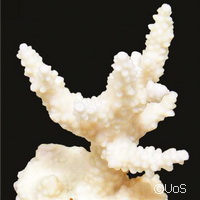Healthy balance of nutrients for healthy reefs
Coral reefs are among the oldest ecosystems on Earth and, much like human habitats, they provide shelter and food for a large variety of marine species. In fact, more marine species live amongst coral reefs per square metre than any other marine environment. However, despite their apparent toughness they are also very fragile - they can be damaged through human handling, chemical contamination and a change in the saline levels. When they are stressed in this manner, they release algae, lose their colour turning white, or 'bleached', and if it continues they could die. New research from the University of Southampton and the National Oceanography Centre, Southampton has discovered that the instances of bleaching susceptibility of reef corals could be increased as a result of an imbalance in nutrients in reef waters. The study has been published in the latest issue of the journal Nature Climate Change. Their article highlights their finding that nutrient enrichment of the water can increase the probability of corals to suffer from heat-induced bleaching. The researchers from the University of Southampton were based at the Coral Reef Laboratory in the National Oceanography Centre, Southampton. It was there that they discovered that phosphate starvation of the algae resulted from an increased supply of dissolved nitrogen compounds in combination with a restricted availability of phosphate. This condition is associated with a reduction in photosynthetic efficiency and increases the susceptibility of corals to temperature and light-induced bleaching. Dr Jörg Wiedenmann, Senior Lecturer of Biological Oceanography at the University of Southampton and Head of the Coral Reef Laboratory, who led the study, said: 'Our findings suggest that the most severe impact on coral health might actually not arise from the over-enrichment with one group of nutrients, for example, nitrogen, but from the resulting relative depletion of other types such as phosphate that is caused by the increased demand of the growing zooxanthellae populations.' Coral, despite their size, are actually composed of many polyps that jointly form a layer of living tissue covering the calcareous skeletons. They depend on single-celled algae called zooxanthellae, which live within the coral polyps. The coral animal and the zooxanthellae depend on each other for survival in a symbiotic relationship. The coral supplies the algae with nutrients and a place to live and in exchange, the algae offer the coral some products of their photosynthesis, providing them with an important energy source. High water temperatures, however, can block photosynthetic reactions in the algal cells causing a build-up of toxic oxygen compounds, and as a result of their symbiotic relationship, this in turn can threaten the coral and can result in a loss of the zooxanthellae. The growth of zooxanthellae is restricted by the limited supply of nutrients. This allows the algae to transfer a substantial amount of their photosynthetically fixed carbon to the coral, which is crucial for the symbiotic relationship. Algal growth becomes unbalanced when the availability of a specific nutrient decreases compared to the cellular demand, a condition called nutrient starvation. Without the algae, corals appear white, a state which is referred to as 'bleached'. When bleaching occurs, this may often lead to coral death and mass coral bleaching has already had a devastating effect on coral reef ecosystems. Dr Wiedenmann added: 'Our results have strong implications for coastal management. The findings suggest that a balanced reduction of the nutrient input in coastal waters could help to mitigate the effects of increasing seawater temperatures on coral reefs. However, such measures will be effective only for a short period of time, so it is important to stop the warming of the oceans, which will otherwise destroy most of the reefs in their present form in the near future. Finally, our results should help the design of functioning marine reserves.'For more information, please visit:National Oceanography Centre, Southampton:http://www.soton.ac.ukCoral Reef Laboratory:http://www.noc.soton.ac.uk/corals/
Countries
United Kingdom



